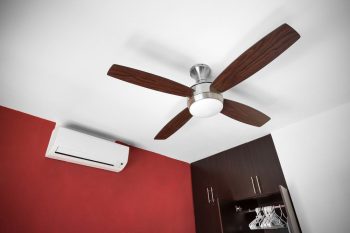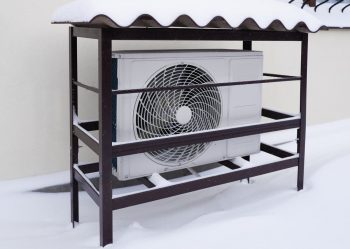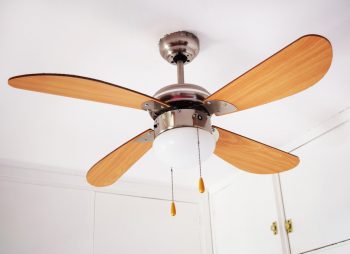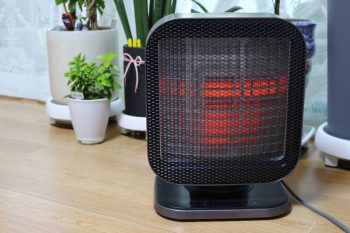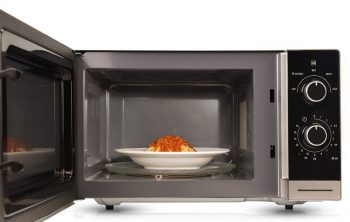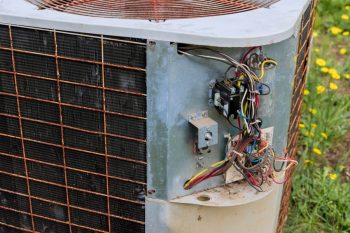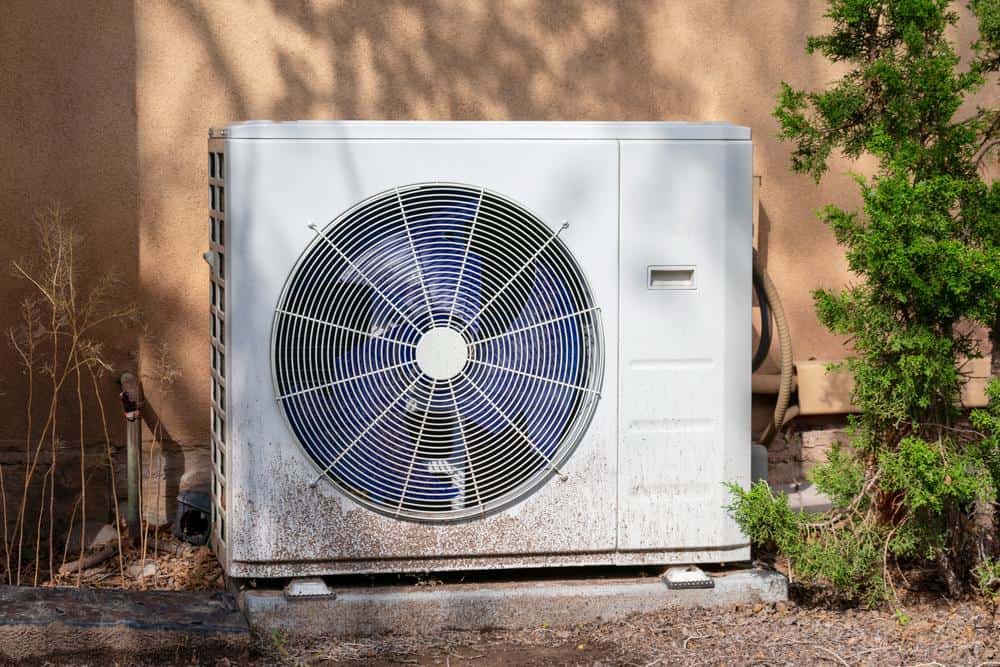
Air conditioners are essential appliances that provide cool relief, especially during hot summer days. However, they can sometimes malfunction and freeze up, leaving you with a hot and uncomfortable home. But why does this happen? What causes an air conditioner to freeze up outside? This comprehensive guide will delve into the reasons behind this common problem and offer solutions to prevent it.
Your air conditioner may be freezing up outside due to a few reasons such as inadequate airflow, low outdoor temperature, improper refrigerant levels, dirty or blocked air filters and vents, damaged or faulty wiring, a clogged condensate drain line, or mechanical problems. Regular maintenance, ensuring proper airflow, and maintaining correct refrigerant levels can help prevent this issue.
Why is My Air Conditioner Freezing Up?
Air conditioners can freeze up due to a variety of reasons. Here are some of the most common:
- Inadequate Airflow: Airflow restriction can occur if too many vents are closed or if the air filter is dirty enough to block proper airflow throughout the system. This can lead to a buildup of cold air, causing the refrigerant to condense on the coils and freeze up the unit.
- Low Outdoor Temperature: Air conditioners are not designed to run in extremely low temperatures. If the outdoor air is below 60℉, the air pressure within the system won’t work correctly, which can lead to freezing.
- Improper Refrigerant Levels: Both too low and too high levels of refrigerant (Freon) can cause the temperature of your evaporator to drop, freezing moisture, and icing up the system. This is often due to a refrigerant leak that a contractor will need to repair.
- Dirty or Blocked Air Filters and Vents: Air filters can accumulate dust and debris that can block the airflow into the system. This can lead to the unit becoming overloaded and freezing up.
- Damaged or Faulty Wiring: Any electrical wiring that appears burnt or torn should be inspected and transformed by a professional due to safety concerns. Regular maintenance can help catch these small issues before they escalate into costly repairs.
- Clogged Condensate Drain Line: A condensate drain line removes water created from the cooling process, preventing it from back flowing into the unit or escaping into your home. If this line gets blocked, it can cause a backup of excess moisture and eventually lead to damage to the unit or your home.
- Mechanical Problems: Refrigerant lines can kink, fans can stop moving, filters can become clogged, and things can leak. Any of these things causes a drop in pressure, allowing the refrigerant to expand too much and become too cold.
Signs Your Air Conditioner is Freezing Up
It’s crucial to recognize the signs of a freezing air conditioner to address the problem promptly. Here are some common signs:
- Visible Ice: Ice on any part of the unit, especially the refrigerant pipe or the evaporator coil, is a clear sign of a frozen AC unit.
- Warm Air: If your vents are blowing warm air, it could be a sign that the AC is freezing up.
- Condensation: Noticeable condensation on the AC unit could indicate freezing in the AC system.
- Noise: Hissing or bubbling sounds can indicate a coolant leak, which often leads to a frozen AC unit.
- Lack of Airflow: A lack of air coming out of your vents and a rise in the temperature in your home can indicate a frozen AC unit.
Preventing Your Air Conditioner from Freezing
To prevent your AC from freezing up, you can take the following steps:
- Change the Air Filter: Check the air filter to ensure it isn’t causing the issue. If it’s clogged, simply replace it.
- Unblock Vents: Sometimes, household furnishings such as furniture and drapes can block vents, causing the cool air to be pushed back into the system.
- Regularly Clean Your AC Unit: Clean your AC unit regularly, especially the fins, which can easily be bent or crushed.
- Check Your Refrigerant Levels: Low refrigerant levels are usually an indicator of a refrigerant leak.
- Ensure Your Vents Are Open: Blocked or closed vents can lead to airflow issues, which then leads to your AC system freezing.
- Check Your Fan: Your AC system’s blower fan generates the airflow needed to keep the evaporator coil from freezing. Ensure it’s working properly.
- Regular Maintenance: Have a professional HVAC technician inspect your AC unit to determine the cause and course of action for your frozen AC.
If these steps don’t resolve the issue, it’s best to contact a professional HVAC technician for a proper diagnosis and repair. Regular maintenance can help prevent these issues and ensure your air conditioner runs efficiently.
In conclusion, while an air conditioner freezing up outside can be a frustrating problem, understanding the potential causes can help you prevent it from happening. Regular maintenance, proper airflow, and correct refrigerant levels are key to preventing your air conditioner from freezing.
Frequently Asked Questions
How often should I change my air conditioner’s filter?
The frequency of changing your air conditioner’s filter depends on various factors like the type of filter, the air quality in your home, and whether you have pets. However, a good rule of thumb is to check your filter every month and replace it at least every three months.
What is the ideal outdoor temperature for my air conditioner to operate efficiently?
Air conditioners are designed to operate efficiently in outdoor temperatures ranging from about 60℉ to 100℉. Below or above these temperatures, your unit may run less efficiently or freeze up.
How can I tell if my refrigerant levels are low?
Signs of low refrigerant levels include warm air coming from your vents, ice buildup on the refrigerant line, and a hissing or bubbling noise from the unit. If you suspect low levels, it’s best to contact a professional HVAC technician to check and refill if necessary.
How often should I schedule professional maintenance for my air conditioner?
It’s recommended to schedule professional maintenance for your air conditioner at least once a year, ideally in the spring before the peak cooling season begins. Regular maintenance can help prevent issues like freezing and keep your unit running efficiently.
Can I defrost a frozen air conditioner myself?
Yes, you can defrost a frozen air conditioner by first turning off the system and then letting the ice melt naturally. However, it’s important to address the underlying cause of the freezing to prevent it from happening again. If you’re unsure of the cause, it’s best to contact a professional HVAC technician.

